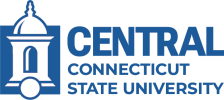About Our Project #
This project endeavors to merge and hopefully provide potential solutions to a number of inter-related pedagogical goals. These include:
- Incorporate community-engaged learning into the curriculum. Students, working on real projects for actual community partners receive many benefits. These include increased student motivation, authentic software engineering experiences, and the honing of key professional practices.
- Focus on projects that have positive social benefit. While real-world projects engender greater motivation than instructor-fabricated ones, projects that also convey the myriad of potential benefits computing can have in one’s community also have been shown to have strong positive impacts on broadening participation.
However, as anyone who has undertaken a community-engaged learning project can attest, there are numerous hurdles that must be overcome. These include:
- Proper project vetting. Each project demands certain technical skills that must match student abilities.
- Community-partner buy-in. Community-engaged learning is not a free software development opportunity for local non-profits. Instead these partners must embrace the concept that they are now partners in the educational process. While a successful project is always the hope, project failure is always an option. Student education is the first priority.
- Timing mismatch. It is rare that a properly scoped/vetted project has a one-semester timeline. Real projects almost always have a timeline greater than one term. However, student course-work is constrained both by the academic calendar and by the acknowledgement that students are not full-time employees.
Our proposal #
Borrowing from successful engineering initiatives (e.g. EPICS) we propose to deploy the studio model as a methodology for incorporating social good-based, community-engaged learning in the computer science curriculum.
In the studio model, projects “live” in the studio as long as necessary. Students, enrolled in various courses (e.g. Software Engineering, Capstone, etc) work in teams on aspects of those projects currently residing in the studio, providing a time-limited, although, authentic software developer experience.
Project goals #
To create a comprehensive set of materials for interested educators to use in setting up their own studio. These materials will be class tested in a variety of educational contexts: from large universities with graduate programs (where multiple courses/teams are concurrently working on multiple projects), to small, undergraduate, liberal arts institutions (where during any one term, there may be only a single course with only a handful of teams, all working on the same project).
The developing set of materials will guide the prospective adopter on:
- Identifying potential community partners with the needed level of “buy-in.”
- Project vetting to ensure project scope and skill needs are an appropriate match.
- Templates to guide project team - community partner interactions.
- Assessment guidelines for both formative and summative student assessment.
- Project hand-off processes to ensure projects smoothly transition from one academic term to the next.
Who We Are #
Consulting

